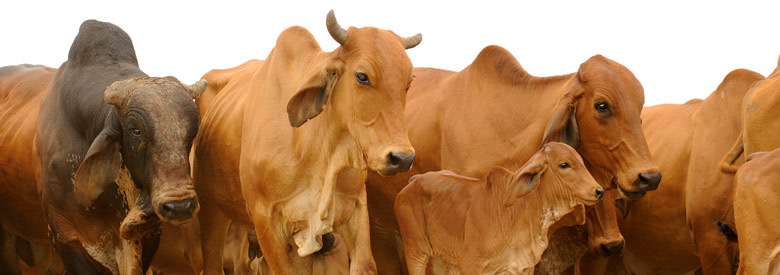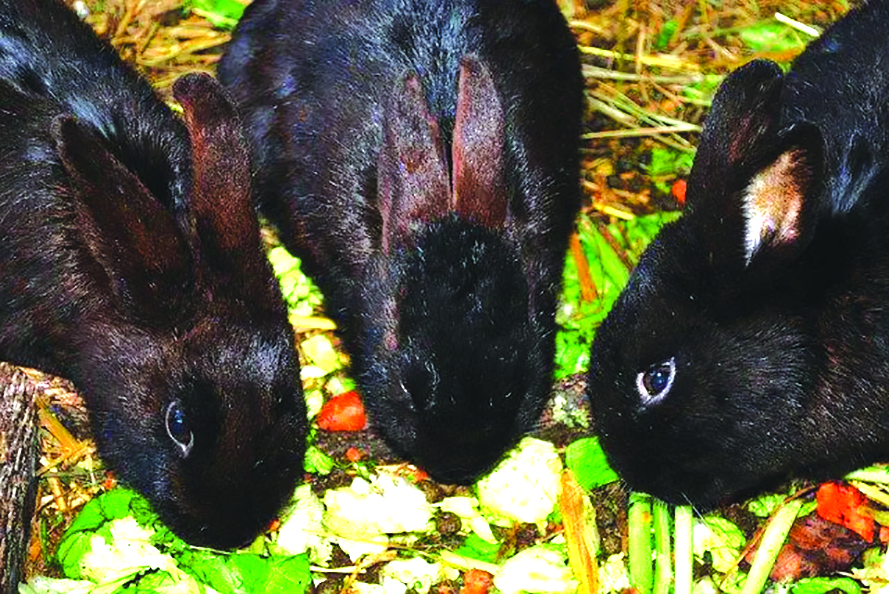Libuseng Molato
Sebabatso Makoanyane, the visionary behind Phallo Beef Limited, is on a mission to transform Lesotho’s meat industry and stimulate economic growth.
Founded by Makoanyane, a young Mosotho entrepreneur, Phallo Beef Limited aims to revolutionise the beef production sector by delivering grades A and B beef, a significant leap from the previous grade C standard.
“Phallo is a company developed to strengthen the private sector, and beef production is a priority area in our program of various projects in agriculture, infrastructure, tourism, and renewable energy. The greatest mandate as a company led by young people is to break the mentality of Basotho not believing in ourselves. It frustrates me to see us not believing in our potential,” Makoanyane stated, noting, “We know the law, and we are not looking for anyone’s favour to succeed. This is going to happen because we have thoroughly done our homework.”
Earlier last month, the Minister of Agriculture, Food Security, and Nutrition, Thabo Mofosi, made a ground-breaking announcement regarding Lesotho’s potential to produce high-quality red meat. Mofosi introduced Phallo Beef Limited as the implementing organisation for this ambitious project.
Minister Mofosi expressed his pride and excitement, stating, “This is a great achievement for our nation. We are pleased to have someone come up with such a great idea which is a need and aligns with the government’s mission to develop agricultural sectors, with beef production selected as a priority to reduce the rate of beef importation.”
Highlighting the company’s alignment with the government’s mission to develop the agricultural sector, Mofosi emphasised the strategic importance of beef production as a priority to reduce beef importation rates and outlined the company’s commitment to job creation.
“There are plans to build high-standard abattoirs capable of slaughtering 320 cows daily and establish multiple feedlots and calf and fodder production centres across all ten districts. Additionally, preparations include the construction of a tannery for leather products as by-products of the red meat industry.”
Mofosi underscored the benefits for farmers, noting that Phallo Beef Limited would provide training in standard farming practices, veterinary services, and a civilian response system.
He encouraged all interested parties to engage with the ministry’s resource centres in their respective districts for further information and guidance.
Responding to a query regarding government preparations for legislation on the importation of superior livestock, Mofosi assured that relevant policies were in progress.
He emphasised the importance of responsible livestock management, urging farmers to implement designated feedlots and undergo assessments for compliance.
Mofosi assured stakeholders of his Ministry’s readiness, citing approved financial allocations for a trade park equipped with state-of-the-art quality assurance machinery from Australia, aligning with international standards which would make meat export a reality.
Makoanyane outlined the construction timeline of the state-of-the-art abattoir, expected to commence on July 1, 2024, in Thabana-tšooana, Berea district, with completion scheduled for November 2025.
He highlighted the abundance of registered farmers and cows in the country, affirming the project’s supply capacity to meet set targets.
“Our regulations will be stringent, necessitating extensive training and support for farmers in cross-breeding and artificial insemination until we achieve grades A and B standards,” Makoanyane emphasised.
He noted the abattoir would adhere to halal and European Union standards, initially catering to the local market before expanding to international exports.
Tackling Unemployment
Makoanyane mentioned that the high unemployment rate in the country is a driving force behind the idea. He decided to come back home, despite his success in construction projects in South Africa, to build a proper employment system in his own country first.
“As youth, we have a huge responsibility to introduce new ways of doing things and stop chasing old practices. We must change the course of history and develop an independent system to transform our country,” he stated.
The Breeding Component of the Project
“We have established relationships with the Wool and Mohair Growers Association executive committee and farmers, as they are already engaged in commercial farming and understand the concept. Introducing this to them will be easy and presents an opportunity to expand their program and produce calves to supply our feedlots and then the abattoir,” Makoanyane explained.
“The breeding opportunity is entirely for Basotho, while the Lesotho and South Africa joint venture will handle feedlot operations, as they are experts in that space, and Phallo will focus on meat processing,” he narrated.
“We are already touring the country and meeting with wool and mohair farmers. We have about 35 wool sheds in the country, each comprising fifty to five hundred members, and often thirty per cent are already in the breeding program. This proves the success of the idea,” he clarified.
Makoanyane said farmers’ responses nationwide have been very positive as they are embracing the idea.
He pointed out that research indicates there are about 200,000 cattle registered in the country, and any farmer interested in joining should bring their cattle for characterisation.
He indicated that weaners (female cows) aged one to seven years will be diagnosed to see if they possess the qualities needed for artificial insemination cross-breeding.
“If qualified, a contract will be signed. Pregnancy tests will be conducted before synchronisation, followed by artificial insemination. The inseminated cattle will be set aside to avoid mixing with others. All cattle in the contract will be inseminated only from the company’s laboratory for quality assurance, and all calves bred within the contract period will be bought by Phallo Limited following market prices,” he explained.
“In the next three months, we will have grade-A straws of semen for cross-breeding over ten thousand weaners and exchange over one thousand bulls for meat processing. The contract for the supply is done,” Makoanyane said.
Currently, he said they have contracted Absolute Genetics Company in South Africa, but the target is to have their own parent bulls.
“We already have a registered bull centre with the design ready in Egypt, and in the coming years, they won’t depend on artificial insemination.”
“Nothing can heal this country aside from a cow. Traditionally, Basotho relies on cows, and they can change anything by utilising them, hence the transformation of the country’s economy will involve cows,” he concluded.
With Phallo Beef Limited’s advent, Minister Mofosi said Lesotho’s red meat industry is poised for transformation, promising economic growth, job creation, and elevated standards in meat production.
Summary
- “Phallo is a company developed to strengthen the private sector, and beef production is a priority area in our program of various projects in agriculture, infrastructure, tourism, and renewable energy.
- We are pleased to have someone come up with such a great idea which is a need and aligns with the government’s mission to develop agricultural sectors, with beef production selected as a priority to reduce the rate of beef importation.
- Highlighting the company’s alignment with the government’s mission to develop the agricultural sector, Mofosi emphasised the strategic importance of beef production as a priority to reduce beef importation rates and outlined the company’s commitment to job creation.

Your Trusted Source for News and Insights in Lesotho!
At Newsday Media, we are passionate about delivering accurate, timely, and engaging news and multimedia content to our diverse audience. Founded with the vision of revolutionizing the media landscape in Lesotho, we have grown into a leading hybrid media company that blends traditional journalism with innovative digital platforms.








